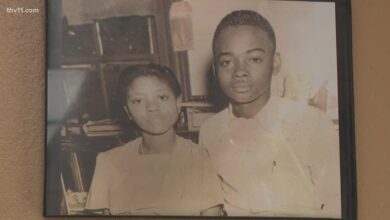Black History in Arkansas: A long, rich culture of influence amid systemic oppression | Opinion

Arkansas is full of rich history, and a large portion consists of the African American population and their stories. It began with French colonists bringing African people to Arkansas as enslaved people who heavily affected the state’s plantation and agricultural economy. Despite these horrible circumstances, Black Arkansans wielded strong influence throughout Arkansas’ history and culture in a territory actively against them, according to CALS.
African American enslaved people began to reclaim their culture with traditional practices from their countries. The larger plantations allowed bigger, tighter communities to form and act as families because of the horrors they endured together. The practices included tribal religious services, West African folk stories with animals such as the Brer Rabbit and traditional folk medicine, according to CALS.
From March to July 1867, Congress passed three new Reconstruction Acts. These latest measures gave way to Southern state governments dismantling and replacing their governments with new, more radical ones where Black men could vote in elections, maintain office and have full political equality.
Many Black men seized the opportunity, and soon the Black male population occupied 35% of Arkansas’ new electorate despite only making up 25% of the state’s general population. This chance for political representation and power was a glimmer of hope amid a backdrop of oppression in post-Civil War Arkansas, according to CALS.
The Black population grew as the century progressed, and with that came a thriving Black commercial district on Little Rock’s West Ninth Street. The street consisted of independent Black artists, merchants and artisans who operated their places of business.
This is when the Mosaic Templars of America, a Black fraternal and insurance organization, was founded in Little Rock in 1882. It expanded in the 1920s to become one of the largest Black business enterprises in the United States. Black Arkansans founded the organization out of necessity because banks consistently denied Black entrepreneurs access to the funds needed to support financial development.
West Ninth Street was an entertaining solace to soldiers during World War II. Dreamland Ballroom, one of the booming businesses during this time, which hosted many famous musicians such as Nat King Cole, Duke Ellington, Ella Fitzgerald, Dizzy Gillespie, Cab Calloway and B.B. King.
Housing acts such as the National Urban Renewal project sought to tear down black communities and neighborhoods much like West Ninth Street and the neighboring homes. Their goal was to help segregation persist under the guise of updating blighted city areas.
Many Black Arkansans were unjustly evicted if they refused to sell their homes or move, and the city tore down businesses along West Ninth Street to make way for new housing. The bright history of entertainment and community soon dwindled after these acts, according to CALS.
The construction of Interstate 630 in the 1960s also contributed to the destruction of the legendary area. Ninth, 10th, and 11th Street. were all wiped out as well as over 100 businesses that resided there.
U.S. Department of Transportation officials revealed the interstate program displaced almost half a million households and more than a million people. It significantly reduced the wealth of the Black community in Arkansas, according to THV11.
As a result, in 2000, housing was more residentially segregated than it had been 100 years earlier and still in the 21st century, according to CALS.
During this time, there were many Black Arkansans who were trailblazers in their respective fields. Dr. Samuel Kountz from Lexa, Arkansas, pioneered organ transplantation and was the first surgeon to conduct a renal transplant in Egypt as a visiting Fulbright professor in the United Arab Republic. Little Rock’s Florence Beatrice Price was the first African American female composer to have a composition performed by a major American symphony orchestra, according to Only in Arkansas.
There are places in Arkansas that commemorate the state’s rich and influential Black history. The Arkansas Black Hall of Fame is a place to recognize great Black Arkansans inside the excellent Mosaic Templars Cultural Center. The MTCC gets its name from the historic West Ninth Street fraternity organization. Taborian Hall still stands as the only remaining building of that fateful community.
Black history in Arkansas is seldom talked about and oftentimes erased. It is important to learn, and yet a lot of the history goes unnoticed and brushed under the rug. The historically significant West Ninth Street and first names in medicine and music are only a few examples of the inspiring culture residing in the Natural State.























































